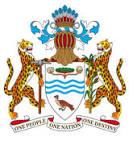Resource information
The Act provides for the resumption of Lands alienated by the State which are abandoned for eight or more years by the owners thereof and of which the owner cannot be ascertained (sect. 3). If the Minister, upon report, or after any further inquiry he deems expedient, is satisfied that a prima facie right to the land has been established, all further proceedings under this Act in respect of the land shall cease; but if the Minister entertains a doubt as to that right, the Minister shall refer the claim to the High Court, and a judge of the High Court shall fix a date for the investigation of the claim (sect. 6). Section 8 deals with claims of land alienated prior to 1803. Resumed land shall be appraised (sect. 11) and appraised value be paid to owners within 10 years. (18 sections)



